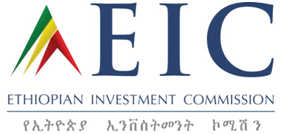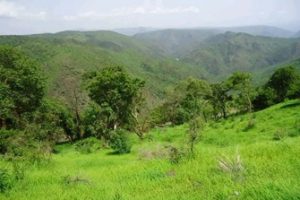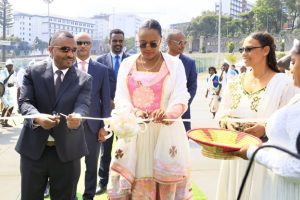
Ethiopia often ranks poorly on ease of doing business reports of the World Bank. In order to improve the country’s status in doing business, the government of Ethiopia has recently launched a national initiative.
Taddese Meshesha Public Relation Officer at Ethiopian Investment Commission told The Ethiopian Herald that the national investment plan mainly identified over 80 distinct actions that would be delivered across operations provided in 10 government agencies.
The reform measures will be monitored by the Policy and Performance Unit of the PM’s office and coordinated by the Ethiopian Investment Commission (EIC), he added. The national initiative, which aimed at improving Ethiopia’s investment climate, was launched by Prime Minister Dr. Abiy Ahmed, who underlined Ethiopia’s current investment climate as underperforming.
The newly launched initiative is an integral part of Ethiopia’s Action Plan for Jobs. The initiative will make Ethiopia more competitive to start and grow businesses, according to Prime Minister Dr. Abiy Ahmed. Following the reform measures in Ethiopia since March 2018, the World Bank had approved 175 Million USD grant on June 2018 and again a total of 1.2 billion USD in grant and credit on October 2018. Yet the Bank’s ranking in ease of doing business for the year 2018 has put Ethiopia in the lowest level despite the fact that the country is one of the leading destinations of foreign direct investment in Sub Saharan Africa.
The Bank’s move to approve such a funding to the economy of the country against low ranking has more to do with the Government’s endeavor embarked upon a path of political and economic transformation. “… the Government has recently broadened the political space to include opposition parties, actively engaged in regional diplomacy, and announced a range of economic reforms designed to revitalize the economy by expanding the role of the private sector.
This includes plans to gradually open up the economy and introduce competition to and liberalize sectors that have been dominated by key state-owned enterprises (SOEs),” says the Bank’s press release of October 2018. The International Monetary Fund (IMF), as part of its economic outlook for Africa that was published on October 2018, forecasted that Ethiopia will host Africa’s fastest growing economy in 2019, as the country’s economy is projected to grow at 8.5 percent during the current Ethiopian fiscal year, which will end on July 7, 2019.
The Public Relation Officer at Ethiopian Investment Commission says that the World Bank has been measuring business environments of countries using criteria like electricity, ease of starting and running business, taxes and the protection of property rights. Opposite to this in recent years, Ethiopia has become one of the top leading Foreign Direct Investment (FDI) destinations in Africa and also globally.
The country hosts various foreign companies from across the globe. World Bank prepares a report based on the whole sectoral activities in the country. But the country is at the top in attracting FDI since the report is prepared based on the investment sectors only.
Taddese stated that, the reason why the country is ranked among at the top of the attracting the FDI is provision of better infrastructure, and the successive growth of market sizes and the government’s openness for FDI contributed to high profile investors targeting Ethiopia. It is important to consider the distribution of electricity in all sectors not only in the capital city.
Distribution of electric service must be accessible to all small towns of the country as well since it is one criteria for the measurement of the country’s level of ease of doing business.
Assistant Professor of Economics at Addis Ababa University Dr. Birhanu Denu agrees that delay in giving active service and lack of providing enough electricity for the business people results lowest rank in the world compared to the rest of African countries.
Other countries’ experience show that active services can be delivered by the government within a short time using technology. On the other hand Ethiopia stands top in attracting FDI because of the real change from year to year in the country in economic sectors.
This may be related to building different industrial parks and also making conducive environment for the investors. But the WB’s ranking is related to more of social and political issues in the country. Birhanu explained that to encourage private investment and promote the inflow of foreign capital and technology into Ethiopia, tax exemption is granted to both domestic and foreign investors engaged in areas eligible for investment incentives.
Exemption from the payment of import customs duties and other taxes levied on imports is granted to an investor to import all investment capital goods, such as plant machinery and equipment, construction materials, as well as spare parts provided that the goods are not produced locally in comparable quantity, quality and price.
This has its own positive side in attracting FDI and makes Ethiopia at the top in attracting investment. Industrial parks construction is part of the Ethiopian government’s ambitious plan that will see the country become the manufacturing hub of Africa with a middle income economy
Herald January 12/2019
BY HAILE DEMEKE




